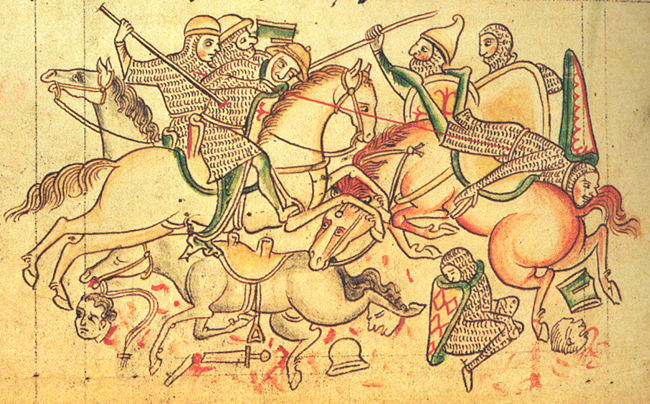|
Aymar De Lairon
Aymar de Lairon (died 1219), also Adeymar, Adémar or Aimerich, was the lord of Caesarea in jure uxoris, right of his wife from at least 1193 until her death between 1213 and 1216. During this period he was a prominent figure in the Kingdom of Jerusalem. As a widower he became the marshal of the Knights Hospitaller until his own death in battle. Lord of Caesarea Aymar witnessed a charter of Count Henry II of Champagne, husband of Queen Isabella I of Jerusalem, in 1193, subscribing as ''Azemarus Cesariensis dominus'' ("Aymar, Caesarean lord").John L. LaMonte, "The Lords of Caesarea in the Period of the Crusades", ''Speculum'' 22, 2 (1947): 153–54. He subscribed a second royal act with the same title the next year (1194). The wife in whose right he held the title, Juliana Grenier, Juliana, is not herself recorded as the lady of Caesarea until 1197, when together they confirmed a grant made by her brother, Walter II Grenier, Walter II, on his deathbed. Between 1201 and 1213 he and his ... [...More Info...] [...Related Items...] OR: [Wikipedia] [Google] [Baidu] |
Lord Of Caesarea
The Crusader state of the Kingdom of Jerusalem, created in 1099, was divided into a number of smaller seigneuries. According to the 13th-century jurist John of Ibelin, the four highest crown vassals (referred to as barons) in the kingdom proper were the count of Jaffa and Ascalon, the prince of Galilee, the lord of Sidon, and the lord of Oultrejordain. There were also a number of independent seigneuries, and some land held under direct royal control, such as Jerusalem itself, Acre and Tyre. Northern states Aside from the Kingdom of Jerusalem, there were also three other major Crusader states in the Near East: *County of Edessa *County of Tripoli *Principality of Antioch These states nominally bore some dependency on the kingdom of Jerusalem. The king of Jerusalem was bound to reconcile them in case of disputes, or between a vassal prince and the Latin patriarch of Antioch, and could claim the regency in case of a vacancy or minority in their successions. Edessa was perhaps ... [...More Info...] [...Related Items...] OR: [Wikipedia] [Google] [Baidu] |
